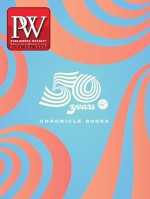Ever since the book industry has had an annual gathering, attendees have found something to complain about—whether it was the American Booksellers Association Convention, BookExpo America, or the just-concluded BookExpo-BookCon combination. The two major issues brought up most often about the 2017 shows were that BookExpo seemed smaller (which it was) and that organizer ReedPop was favoring the new and growing BookCon over the mature BookExpo.
Brien McDonald, event director of BookExpo and BookCon, said Reed expects to get some negative reaction as it works to reposition both BookExpo and BookCon to respond to market realties. “We know change is hard,” McDonald said, but he insisted that Reed put “a lot of thought and effort into making BookExpo the best it could be.”
In an email sent to exhibitors last Wednesday, McDonald reiterated that Reed is fully committed to BookExpo and BookCon: “These two worlds must coexist at our events just as they do in the market. One will not grow at the expense of the other; it’s the combination of the two that make our events so invaluable.”
McDonald acknowledged that the decision to reduce the time the BookExpo show floor was open from three days to two “worked for some, but not for others.” He said after receiving more feedback from its partners, Reed will consider making changes.
Another widespread concern dealt with the ramifications of a floor plan that put all exhibitors at both BookExpo and BookCon in one section of the Javits Center floor and companies only attending BookExpo in another. With most of the major trade houses, including the Big Five, in the BookCon area, the BookExpo-only section had less traffic. Some publishers who were not necessarily interested in being at BookCon but still wanted to be near the larger trade houses felt they needed to pay for the Saturday-Sunday event, even those who had little or nothing planned for it.
Indeed, while BookCon was a hit for most of the larger publishers, smaller, mostly nonfiction-focused publishers abandoned their booths over the weekend. “We don’t want to see vacant booths at BookCon,” McDonald said, adding Reed will work on ideas to prevent that from happening in 2018.
Ahead of the show, Reed had said it was looking to streamline BookExpo to make it easier for publishers and authors to meet directly with book buyers. The more rigorous application process for nonbuying attendees worked well, McDonald said, yielding 7,425 nonpublisher attendees composed largely of booksellers, librarians, retailers, and the media. (He noted that Reed exceeded all of its “modest” attendance goals for BookExpo. Final, audited attendance numbers for BookExpo and BookCon will be released at a later date.) McDonald said he heard from booksellers and librarians that they appreciated the easier access to publishers and that Reed will build on that success to strengthen other areas.
As for BookCon, McDonald said Reed reached its target goal of 20,000 attendees, who, with improved logistics and better crowd control, seemed very energized by their experience. “There was great engagement with authors,” he added. Preliminary figures showed that 83% of attendees were female and 56% were millennials. Reed had looked to broaden the show to attract more families—especially for Sunday—and McDonald said that, based on the 2017 event, it will up its efforts to have more programming for children in 2018.
Next year, BookExpo will take place May 30–June 1 in New York City, followed by a June 2–3 BookCon. “This end-to-end event where publishers start by working with retailers and then move on to meet the end users is unique in the U.S., and we remain certain it is the best approach for the future,” McDonald said.



 Volume 264
Issue 24
06/12/2017
Volume 264
Issue 24
06/12/2017





